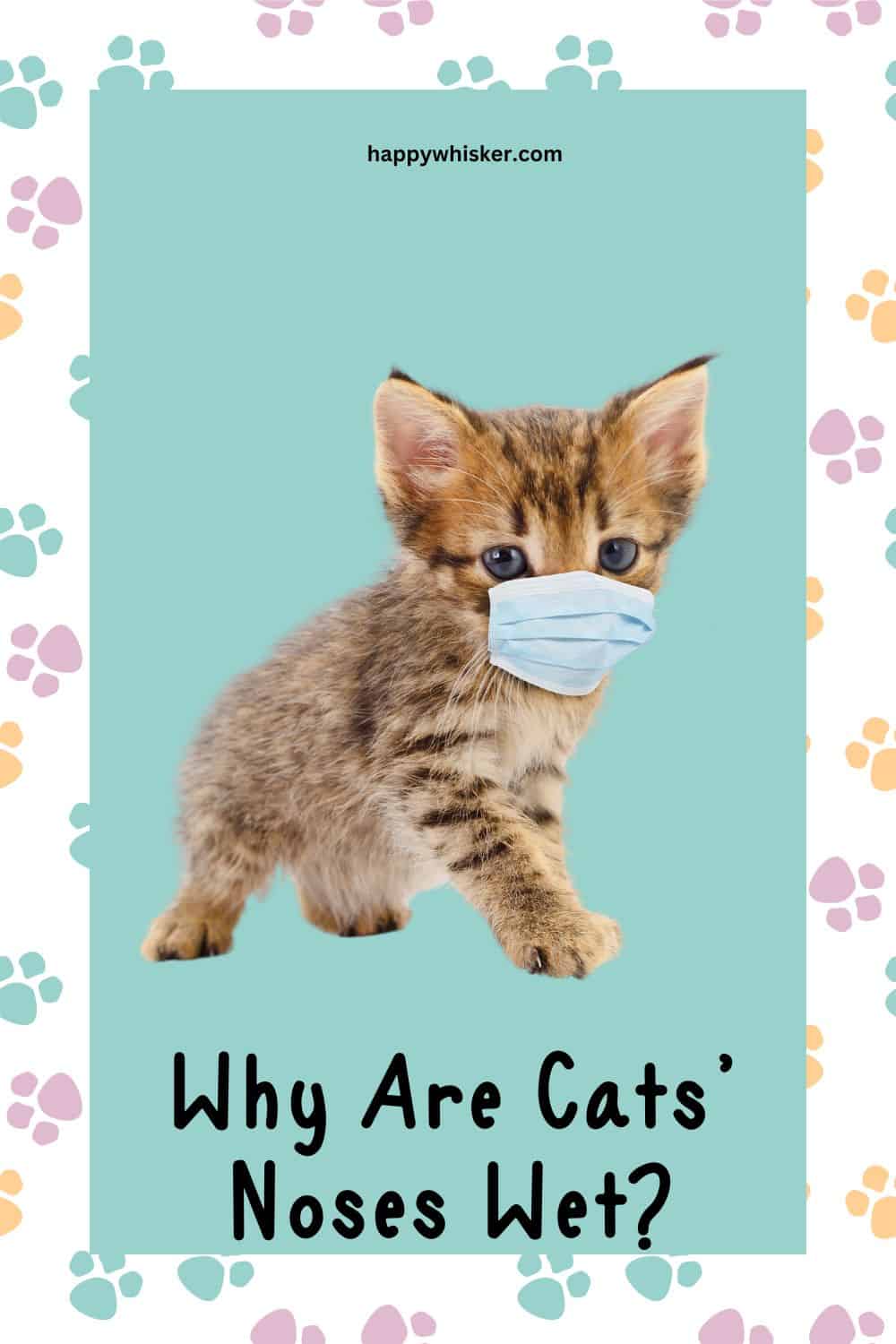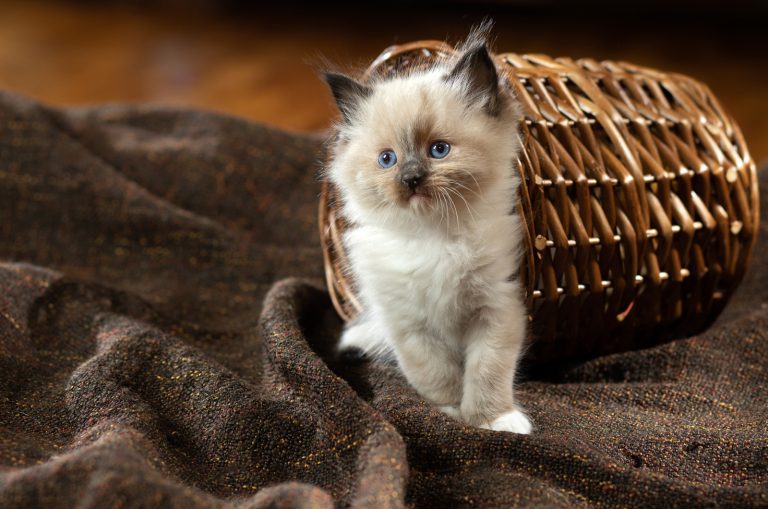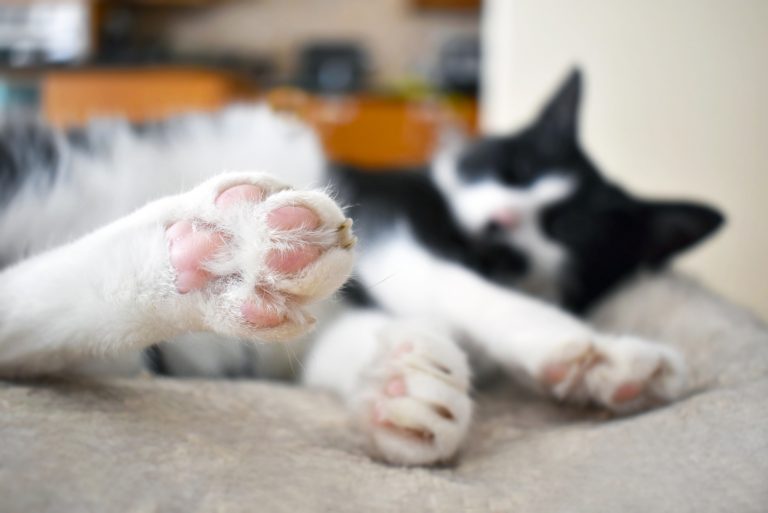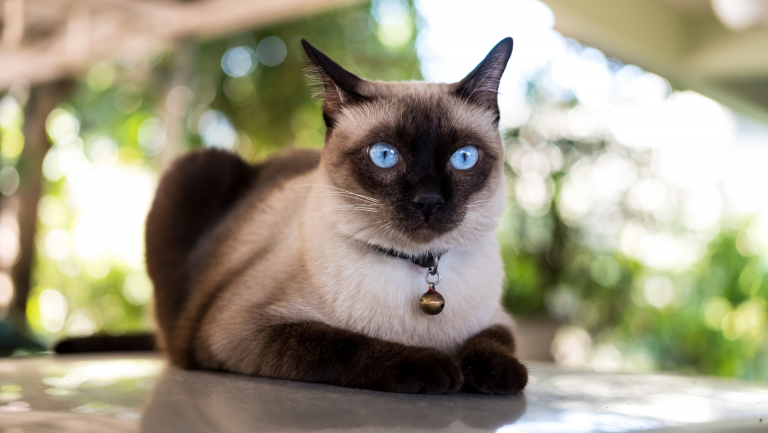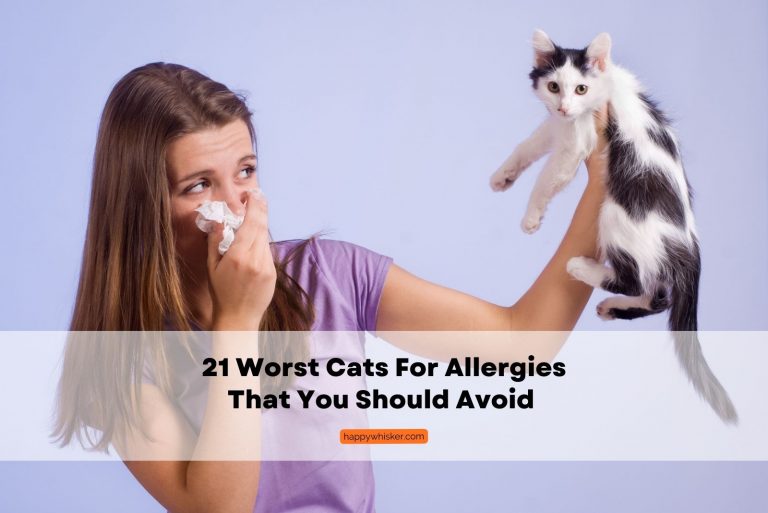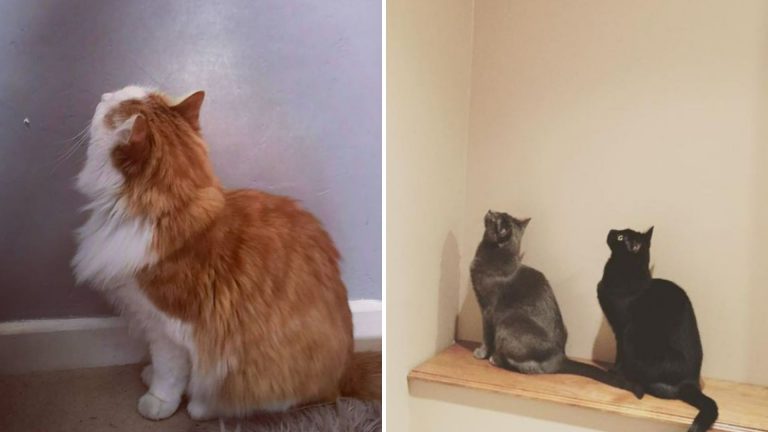Why Are Cats’ Noses Wet? Should You Worry, Or Is It Normal?
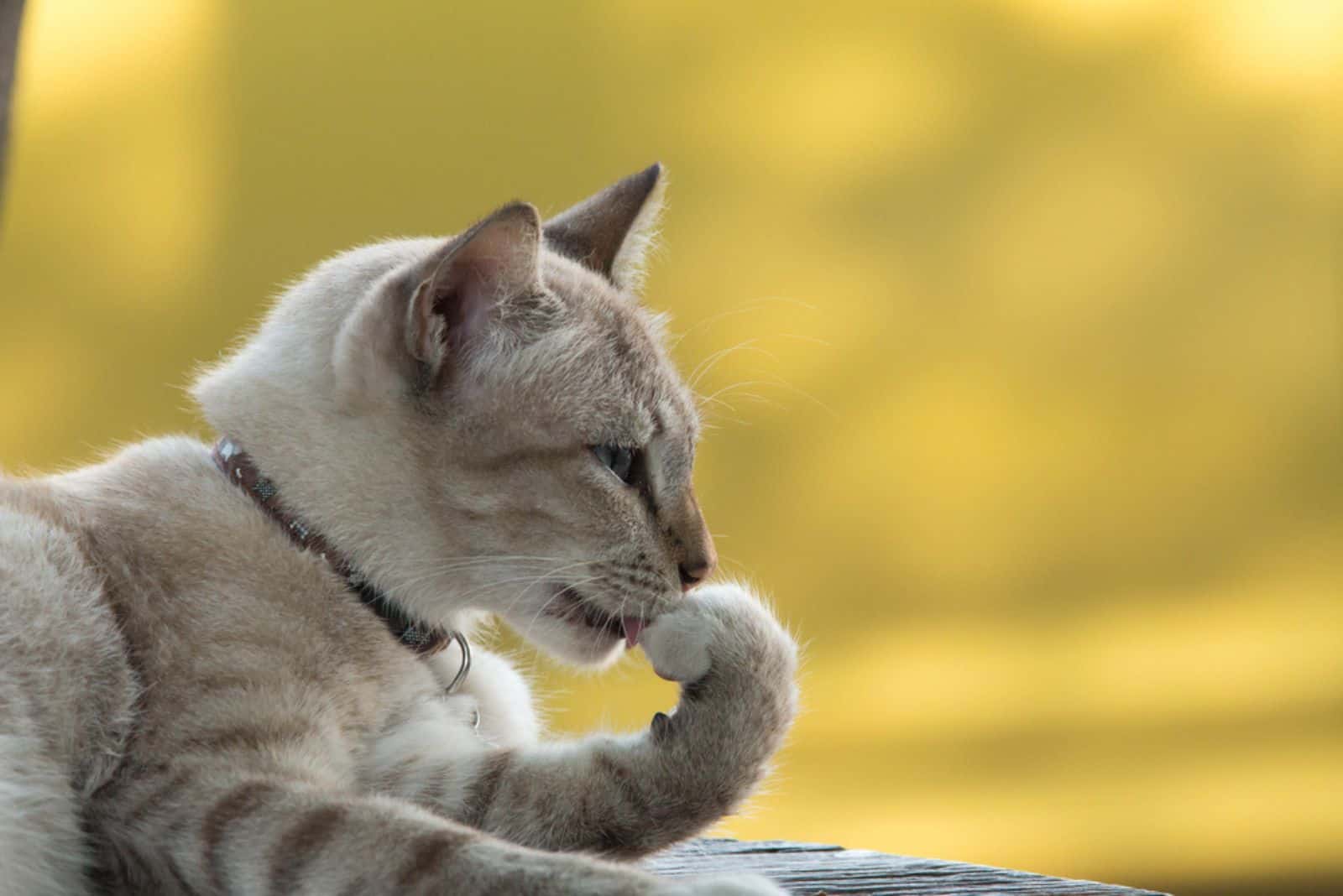
There are many interesting things about cats. For example, if you’re a cat parent, you probably noticed that your cat’s nose may sometimes be wet. So, do cats have wet noses usually?
Just like dogs, cats’ noses are wet most of the time. That can tell us a lot about the cat’s health, especially if certain behavior changes or symptoms follow it.
Therefore, it’s always good to pay close attention to your cat so that you can react on time if such things happen.
So, why are cats’ noses wet? What can that tell you about your cat’s health? Should you be worried that your feline friend is sick, or is it a normal thing for them?
Keep reading as this article will provide the answers to why are cats noses wet and the meaning behind it.
Why Are Cats’ Noses Wet?
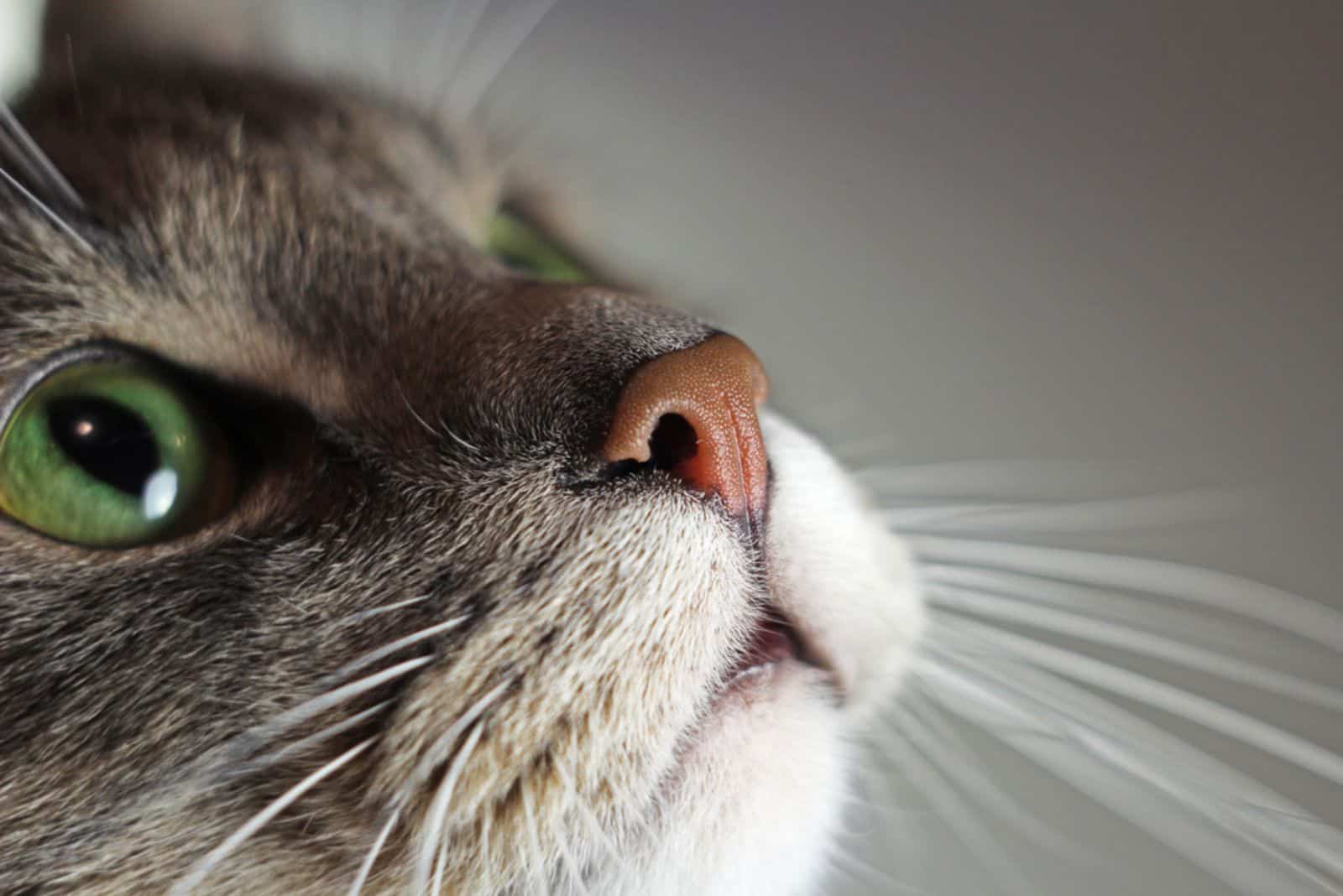
It’s absolutely normal for cats to have wet noses, but what interests most cat owners is why are cats’ noses wet, and when is it a warning sign?
The reason why are cats’ noses wet is because they have the sweat glands on the rhinarium, which is the hairless skin around the nasal openings.
These sweat glands are the primary source of the moisture produced by a cat’s nose. Besides the sweat glands on the rhinarium, another thing that makes the cats’ noses wet is the drainage from the cat’s eyes, that is, their tear ducts.
Of course, many other external things can make a cat’s nose wet, such as drinking water, and different types of weather, such as snow and rain, and similar.
Additionally, cats spend a lot of time grooming themselves, which may also be why they have wet noses.
Now that you’re familiar with how cats’ noses appear to be wet, keep reading as this article will also provide you with common reasons for cats’ wet noses.
Is It Normal For Cats To Have Wet Noses?
Normally, your feline friend has a wet nose, but it typically changes throughout the day.
Numerous environmental, physical, and health variables can cause a cat’s wet nose. It’s usually the result of drinking water, eating, grooming, or some external elements, such as snowy and rainy water.
In rare cases, the cat’s wet nose may indicate more complicated issues that I’ll discuss later in the article.
The occasional dryness of your cat’s nose is also possible and should not cause alarm. However, you should visit your veterinarian if you notice that your cat has a drier nose than usual, along with other physical symptoms or behavioral changes.
However, just like with dogs, it’s absolutely normal and healthy that cats have wet noses, mainly because they can benefit from it a lot.
So, if you wish to learn more about cats’ wet noses and how that can help them in their everyday life, then let’s delve deeper into the reasons behind your cat’s damp nose.
Also, find out why is your cat acting normal but not eating much!
Why Do Cats Have Wet Noses – Possible Reasons
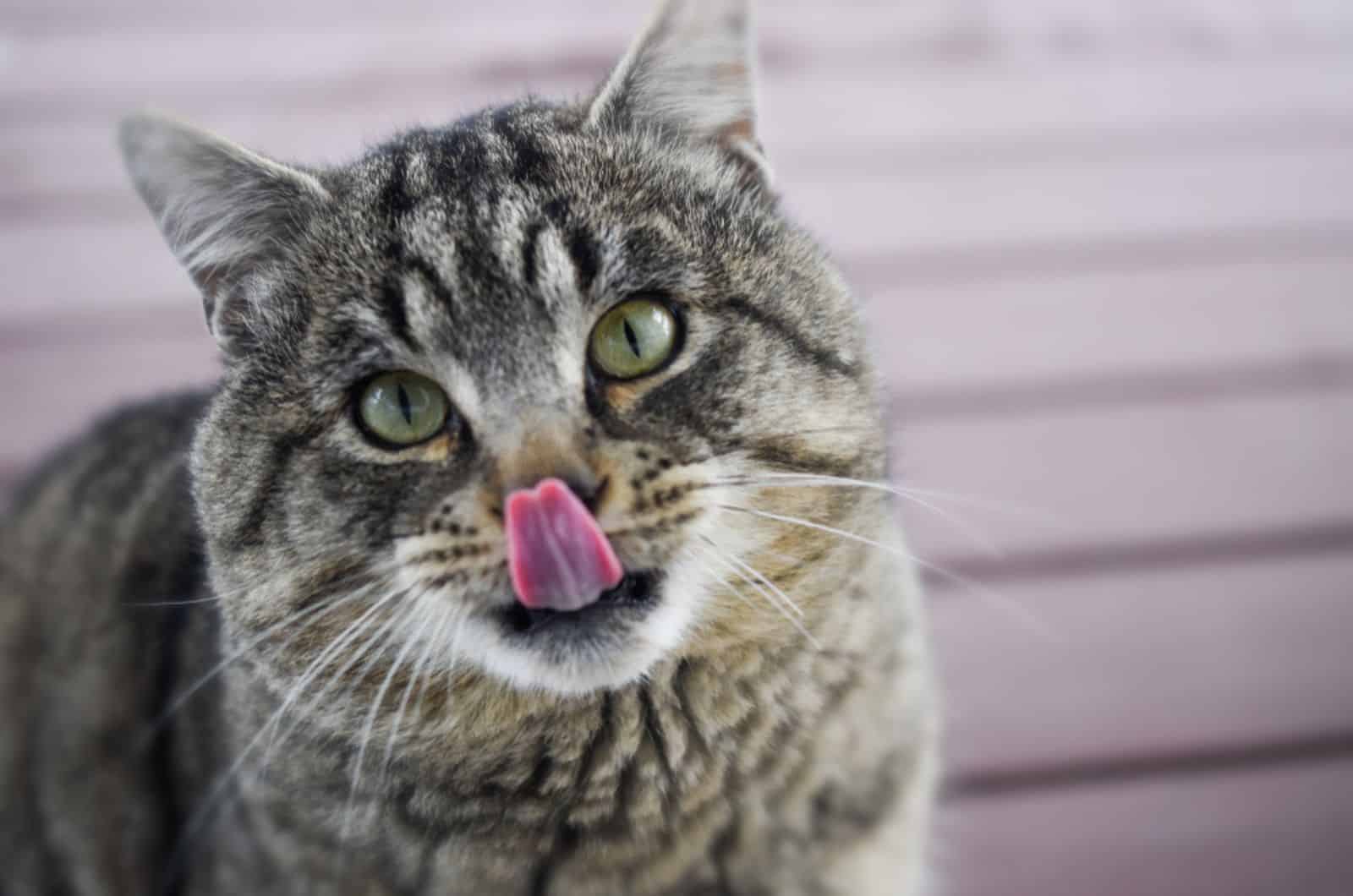
Nature always thinks about everything, and that can be seen in this part of the article; cats’ noses supposed to be wet, because it helps them in their everyday lives. Keep reading and discover how wet noses help cats in their lives and why it is so!
Picking Up Scents
Cats have a great sense of smell, and their wet noses make it easier for them to detect odors and pinpoint their sources, thanks to the scent receptors in their nasal cavity.
Dogs respond similarly. Moist nostrils have a distinct advantage because scent particles adhere to wet surfaces more readily than to dry ones.
Moreover, cats use their wet nose to smell the food and determine what it is. If it turns out to be a scent that cats hate, they’ll leave it.
Also, if the cat’s nose is congested due to a respiratory infection or similar, the cat won’t be able to determine the type of food, which may lead to loss of appetite.
Like dogs, cats have a smell gland called the Jacobson’s Organ located above the roof of their mouths.
They can use it by breathing through their mouths. Occasionally they hold their mouths open slightly in a “sneer” to catch a nice whiff of fragrance, which is referred to as the flehmen response.
Maintaining Body Temperature
If the cat’s nose is wet, it means that the cat regulates its body temperature. Humans sweat profusely to cool off their bodies while it’s hot outside. Instead of having body-wide sweat glands like humans, cat’s only have cooling paw sweat glands.
Cats use the evaporation produced by their wet, hairless noses to help them control their body temperature when they become hot and start to feel overheated.
You may also want to know why is your cat licking its lips!
What If Your Cat Has A Dry Nose?
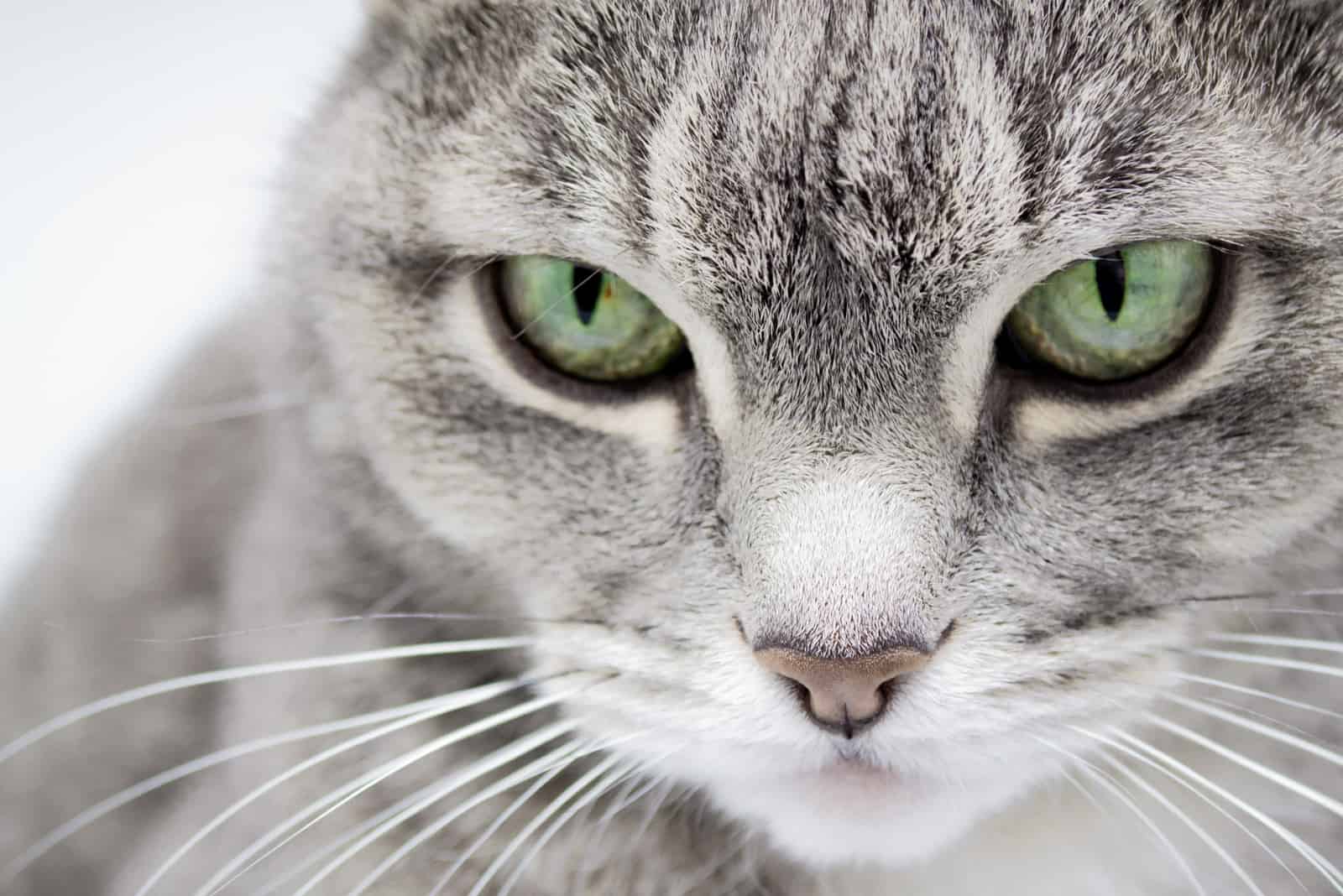
If you notice that your feline’s nose is dry instead of wet, don’t worry, as it’s usually nothing too serious.
Your kitty friend’s dry nose implies nothing more than that they might have been standing under the ceiling fan or that the weather may be becoming cold.
However, it should raise some red flags if a dry nose is present, together with other unsettling symptoms or behaviors like a fever, decreased appetite, or lethargy. It may often be a sign of dehydration.
Touching your cat’s nose or ears can help determine their relative body temperature, so a dry, hot, or warm nose could signify a sickness or even heat stroke.
Pay closer attention to your cat’s routine if you discover that its nose has suddenly become dry. If your cat exhibits any other odd symptoms or behaviors besides a dry nose, make sure to take it to the vet.
If you want to learn more, find out why is your cat’s nose crusty and black!
Should You Worry If Your Cat Has A Watery, Runny Nose?
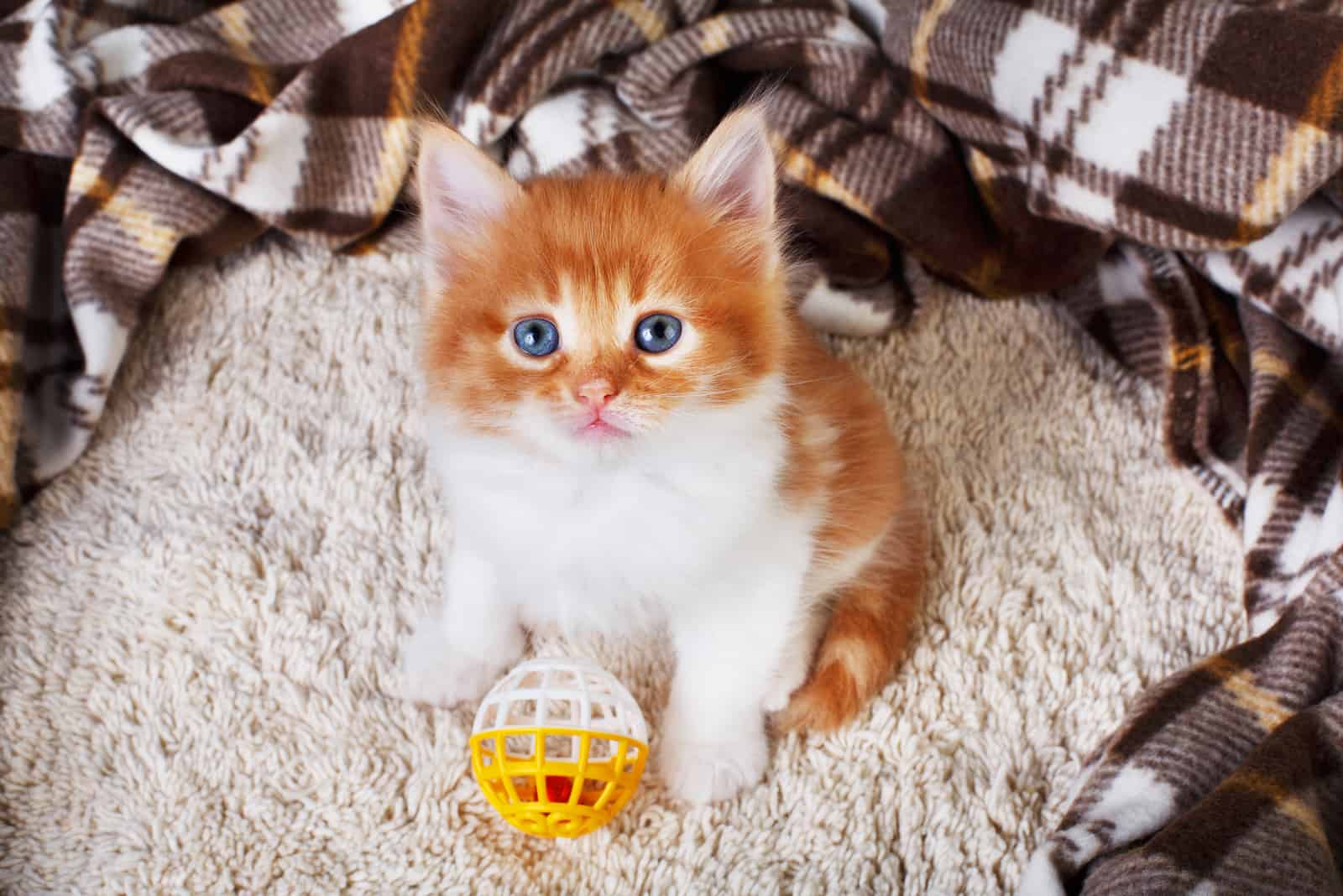
If your cat has a nose that drips, that’s not as common and healthy as a cat’s wet nose. On the contrary, nasal discharge is usually a sign of specific health issues that your cat is dealing with.
Some health conditions that may result with a cat’s watery and runny nose are:
• Upper respiratory infections
• Allergies
• Bacterial infections
These health problems usually require a vet examination so that they can be adequately treated. So, keep reading to learn more about them and what you should do if your feline has some of these health problems.
Upper Respiratory Infections
This condition is very common for cats and it is caused by one or more bacterial or viral agents. The viruses and bacterias that may cause this condition in cats are:
• Bordetella bronchiseptica
• Chlamydophila felis
• Feline herpesvirus type-1
• Feline calicivirus
The upper respiratory infections affect the cat’s nose and throat and are accompanied by symptoms such as:
• Runny nose
• Conjunctivitis
• Loss of appetite
• Breathing difficulties (in severe cases)
Treatment
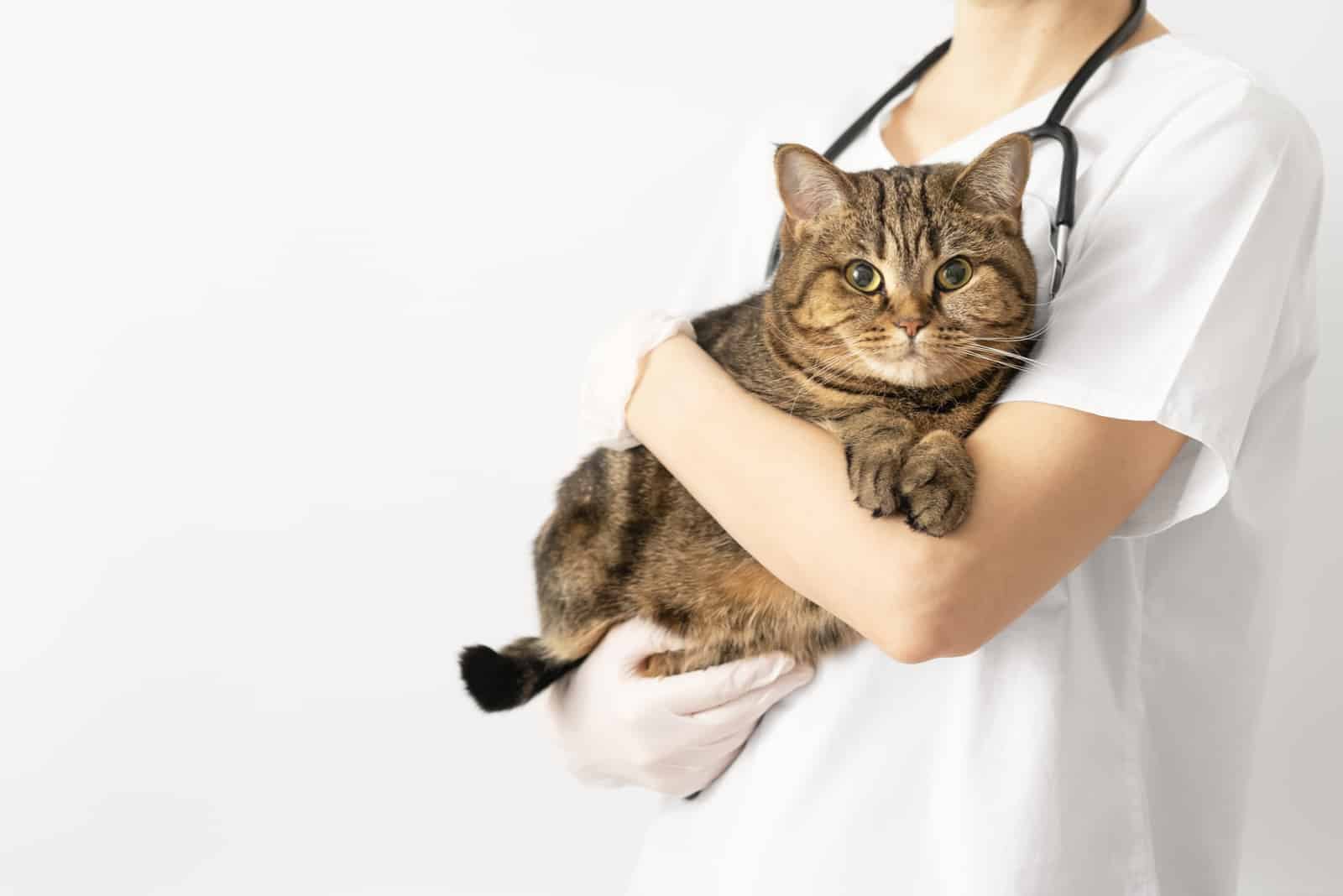
Usually, upper respiratory infection in cats is treated at home with certain medications prescribed by the vet.
However, in severe cases, the cat needs a proper vet examination. If the infection is caused by bacteria, the vet will provide your cat with specific antibiotics to treat the infection.
In severe cases, your feline may be hospitalized in order to be provided with intensive treatment and fluid therapy.
Allergies
Various allergies may be common for cats, causing a reaction of the cat’s immune system to certain substances.
Typical symptoms of allergies in cats are:
• Sneezing
• Coughing
• Skin irritations
• Eye discharge
• Runny nose
• Red skin or red eyes
• Vomiting
• Diarrhea
Treatment
If your cat has a runny nose accompanied by some of these symptoms, it may be that your cat is suffering from certain allergies. In this case, it’s essential to take your feline friend to the vet for an examination.
After a detailed examination, the vet will be able to determine the type of allergy and treat it based on that.
Bacterial Infections
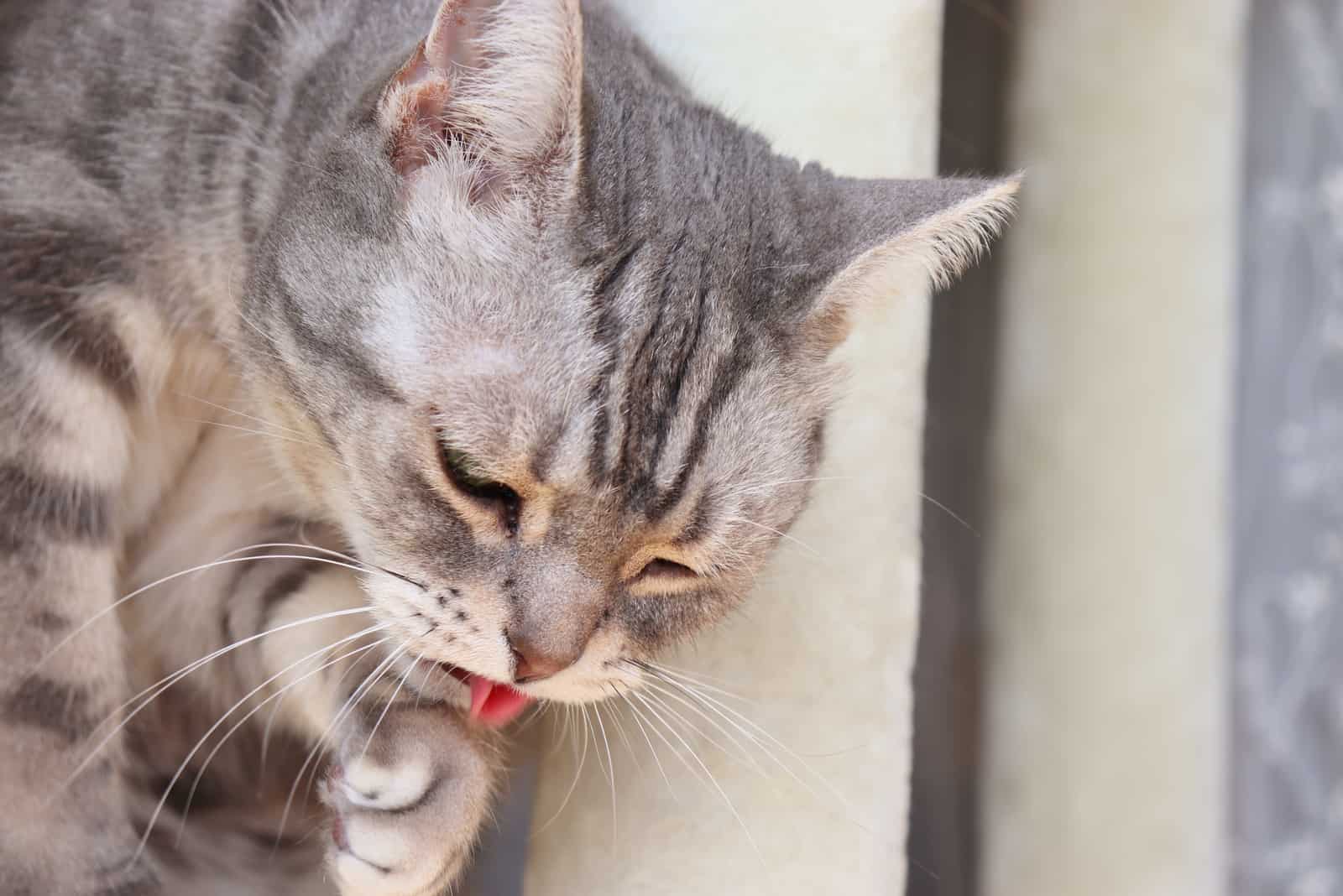
Cats are prone to having different types of bacterial infections. As far as the symptoms are concerned, every type of bacteria may have different symptoms, but the most usual ones are:
• Fever
• Vomiting
• Loss of appetite
• Coughing
• Runny nose
• Watery eyes
Treatment
In case you notice some of these symptoms, it may be that your cat suffers from bacterial infections so it requires a vet check. The vet will run some tests to confirm the diagnosis and determine the type of infection.
The treatment usually involves antibiotics; however, different bacterial infections require specific treatments. Remember to always follow the vet’s instructions.
To Sum Up
Most cats adore booping their owners with their noses, and when they do it for the first time, most cat owners ask themselves why are cats’ noses wet. Moreover, they wonder if it’s normal or not.
If you’re still looking for the answer, worry not as this article covers the whole topic.
Healthy cats should have wet noses. The nose moisture may be due to grooming, drinking from the water bowl, or external factors such as snowy and rainy weather.
The cat’s nose may change from wet to dry multiple times a day. However, if you notice that your kitty’s nose is too dry or too watery and runny, you should take it seriously, as it’s usually a sign of certain health issues.
Therefore, if other symptoms follow the dry or watery nose, it would be best to take the cat to the vet for a proper examination and treatment.
So, even though a wet cat nose is normal, you should still pay close attention if you want a happy and healthy cat.
Like this post? Share or pin it for later!
